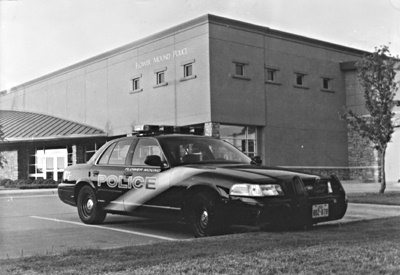All Nonfiction
- Bullying
- Books
- Academic
- Author Interviews
- Celebrity interviews
- College Articles
- College Essays
- Educator of the Year
- Heroes
- Interviews
- Memoir
- Personal Experience
- Sports
- Travel & Culture
All Opinions
- Bullying
- Current Events / Politics
- Discrimination
- Drugs / Alcohol / Smoking
- Entertainment / Celebrities
- Environment
- Love / Relationships
- Movies / Music / TV
- Pop Culture / Trends
- School / College
- Social Issues / Civics
- Spirituality / Religion
- Sports / Hobbies
All Hot Topics
- Bullying
- Community Service
- Environment
- Health
- Letters to the Editor
- Pride & Prejudice
- What Matters
- Back
Summer Guide
- Program Links
- Program Reviews
- Back
College Guide
- College Links
- College Reviews
- College Essays
- College Articles
- Back
No More Forensics
When we first were presented with the idea that anyone could be identified by their DNA, fingerprints, blood and even bite marks, a lot of emotions came out from the public, some thought it was ridiculous while others deemed it simply too good to be true. after nearly 35 years, we have discovered that being able to identify someone using forensics was in fact too good to be true. It took the destruction of hundreds of families and the suffering of hundreds more for us to ask the question, should forensic science be banned from courtrooms? And the answer, due to many reasons, is no.
One example of the many flaws of forensic science is that the field of forensic odontology presumes that everyone has a unique bite mark. But there’s no scientific basis for this assumption. A 2010 study of bite marks from known biters showed that skin deformations distort bite marks so severely that current methods of analysis could not accurately include or exclude a person based on the pattern left by their teeth.
One aspect of forensic science that does work, is DNA. DNA is the principal example of real science at work. DNA is really the only discipline among the forensic disciplines that consistently produces results that you can rely on with a fair level of confidence when you’re seeking to determine whether or not a piece of evidence is connected with a particular source. (Frontline, 2012. Judge Harry T. Edwards on the U.S. Court of Appeals for the District of Columbia)
In 1986, Bennie Starks was convicted of rape and other crimes after forensic odontology experts testified he was the source of a bite mark on the victim. In 2006, DNA test results showed Starks could not have been the perpetrator. Starks spent 20 years in prison for a crime he did not commit because of faulty evidence from an unreliable discipline. More recently, the Texas Forensic Science Commission recommended a flat-out ban on bite mark evidence. (InverseScience, 2016) Misapplication of forensic science is the second most common contributing factor to wrongful convictions, found in nearly half (45%) of DNA exoneration cases. (Innocenceproject, 2017)
As a United States Congress, our job is to keep our people safe and make the best decision for our country. For years, forensic science has destroyed the lives of many and wasted money along with so. congressmen and women before me, before you vote, think yourself and remember that any one of these wrongful convictions could've been you, let's save American lives, let's vote for safety, let's vote aff.
For years, forensic science has destroyed the lives of many innocent people. We shouldn’t allow this to continue to hurt people. Due to its unreliability, and contradictory findings, forensic science should be banned from our courtrooms.

Similar Articles
JOIN THE DISCUSSION
This article has 0 comments.
